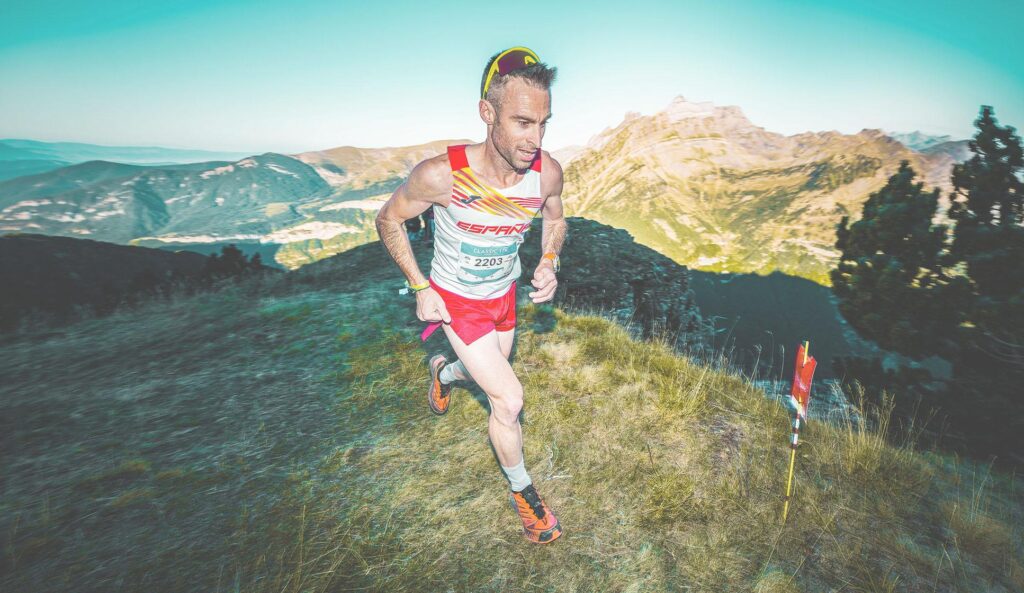A prominent World Mountain and Trail Running medalist has called on more Kenyan athletes to embrace the sport, highlighting its growing global prominence and potential for international success. Speaking to Capital FM, the medalist emphasized the opportunities that mountain and trail running present for Kenyan runners, traditionally known for their dominance in track and road races. With increasing recognition and expanding competitive platforms, the athlete urged fellow Kenyans to diversify their athletic pursuits and tap into the rising popularity of off-road running disciplines.
World Mountain and Trail Running Medalist Calls for Increased Kenyan Participation
Kenya’s rich legacy in middle and long-distance track events has yet to fully embrace the dynamic world of mountain and trail running, a sport gaining significant traction worldwide. The World Mountain and Trail Running medalist emphasized that the unique terrain of Kenya and the natural endurance of its athletes make the country a prime candidate to dominate these disciplines. He highlighted the need for targeted youth programs, better funding, and increased exposure to international trail races to spark interest among Kenyan runners.
To boost participation, the athlete suggested collaboration between sports federations and community organizations focusing on the following key areas:
- Grassroots Talent Identification: Scouting and nurturing young athletes from rural high-altitude regions.
- Specialized Training Camps: Implementing trail-specific conditioning and technical skills development.
- Local Competitions: Establishing a robust calendar of mountain and trail events nationwide.
- International Exposure: Facilitating participation in overseas trail races to gain experience and recognition.
| Potential Benefits | Impact on Kenyan Athletics |
|---|---|
| Increased Medal Opportunities | Expand Kenya’s global sporting dominance |
| Economic Growth | Boost tourism and local economies through event hosting |
| Youth Empowerment | Create alternative career pathways for aspiring athletes |
Challenges and Opportunities in Expanding Kenya’s Presence in Mountain and Trail Running
Expanding Kenya’s footprint in mountain and trail running comes with its distinct set of hurdles. One of the primary challenges is the limited exposure of Kenyan athletes to the specific demands of high-altitude technical terrains, which differ significantly from traditional track and road racing. Additionally, inadequate infrastructure and training facilities tailored for trail environments present obstacles to nurturing emerging talent. Financial constraints and a lack of sponsorship for less mainstream disciplines also inhibit the ability of promising runners to compete internationally.
However, these challenges open up notable opportunities for growth. With Kenya’s established endurance culture and natural high-altitude environments, the country is well-positioned to develop elite trail runners. Key strategies include:
- Building specialized training programs that simulate mountainous terrains
- Partnering with international trail running bodies to provide Kenyan athletes with global exposure
- Investing in grassroots initiatives to identify and nurture young runners from rural regions
- Encouraging private sector sponsorship aimed at long-term athlete development
| Aspect | Current Status | Potential Solutions |
|---|---|---|
| Training Facilities | Scarce mountain-specific infrastructure | Develop trail parks and altitude training centers |
| Funding | Limited sponsorships | Engage corporate partners and sports federations |
| Global Exposure | Few international competitions attended | Facilitate exchange programs and race participation |
| Talent Identification | Minimal scouting in rural areas | Launch grassroots trail running camps |
Recommendations for Developing Infrastructure and Support Systems for Aspiring Trail Runners
Building a robust infrastructure is essential to nurture the next generation of Kenyan trail runners. Investment in dedicated trail running parks and marked routes across diverse terrains will not only enhance training quality but also attract athletes from different regions. Establishing well-equipped training centers with access to altitude simulation rooms, physiotherapy units, and nutritional guidance can provide athletes with holistic support. Collaboration with local communities and environmental experts to maintain sustainable trails ensures the sport grows responsibly, preserving natural landscapes for future generations.
Complementing infrastructure, comprehensive support systems are crucial for athlete development. The creation of mentorship programs involving seasoned trail runners can inspire and guide newcomers through the unique challenges of the sport. Additionally, offering regular workshops on injury prevention, mental resilience, and technical skills will prepare athletes for competitive demands. The following table highlights key components for an effective support system:
| Support Element | Purpose | Example Initiatives |
|---|---|---|
| Mentorship | Skill transfer and motivation | Weekly virtual Q&A with medalists |
| Workshops | Education on health and technique | Monthly injury prevention clinics |
| Psychological Support | Mental preparation and stress management | Access to sports psychologists |
| Financial Assistance | Equipment and travel funding | Grants and sponsorship programs |
Wrapping Up
As Kenya continues to dominate long-distance running on the global stage, the call from World Mountain and Trail Running medalist underscores a growing opportunity for the nation’s athletes to diversify their talents and embrace new challenges. With the rising profile of mountain and trail running worldwide, increased participation from Kenyan runners could not only enhance the country’s sporting legacy but also pave the way for fresh achievements beyond traditional track and road events. Capital FM will continue to follow this developing story as Kenyan athletes respond to the call to explore these rugged terrains.





